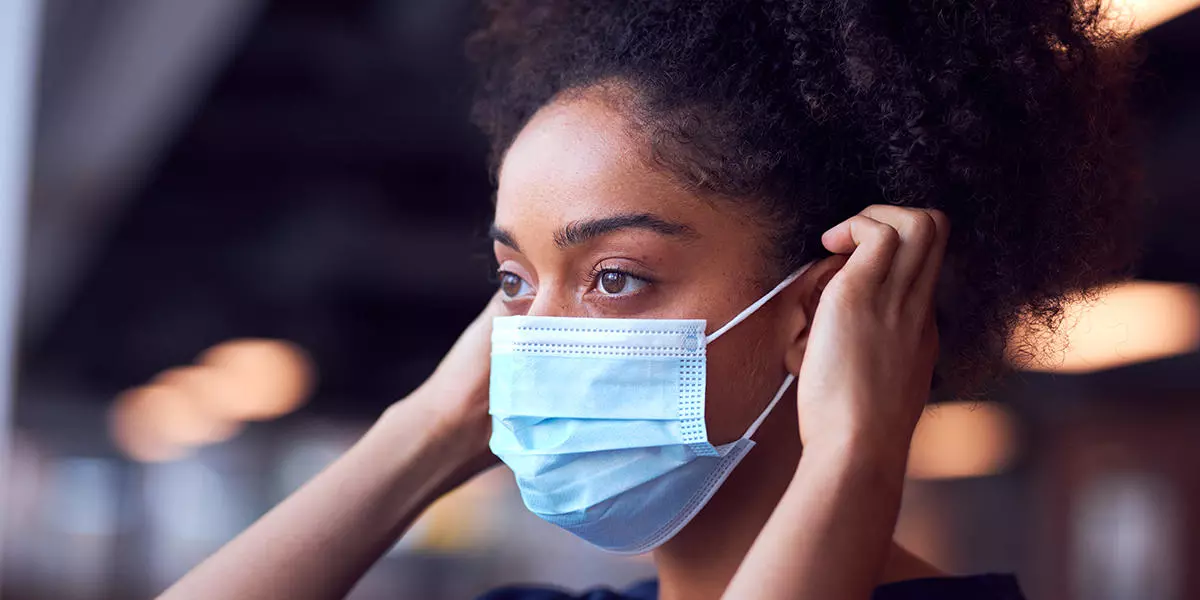Do I Really Have To Wear A Face Mask?
Using a facemask should be a common component of your beauty regimen, regardless of your gender, age or focus. It can facilitate the improvement of your facial skin in multiple ways and is one of the most disregarded parts of a skincare regimen, it provides ‘actions’ to the skin, both for its quality and appearance. Ultimately, yes you should wear a face mask, but we have listed some benefits below that will demonstrate the reasons why.
What are the benefits?
Face masks can unclog your pores and clean out any extra dirt that you have on your face, additionally, it will also remove any naturally occurring oils on your face.
It’s not simply dirt and oils, your face will also collect dead skin that will be trapped in the pores. However, a good face mask will take in all of this.
Even more important to you if you have dry skin, a good face mask should hydrate the skin and add moisture, it should soothe the feel of the skin and increase elasticity.
The relaxation factor should not be compromised, as you stick to some soft music and relax for 15 minutes while the mask is formed. The therapeutic procedure along with the pleasant smells of the formula can always be combined with a hot bath and candlelight.
If the quickest result is what you want, then a face mask is likely the answer. While we suggest regular use of them, rather than just before an event, their simple nature is beneficial in clearing your pores and removing any impurities, they also provide an enhanced complexion that is quick to action.
Nobody wants to appear more elderly, while the regular use of facemasks has been demonstrated to have a significant effect on the prevention of the signs of aging, including reducing the appearance of wrinkles and fine lines, as well as reducing the presence of brown spots.
Other than the removal of bacteria from the skin, another consequence of application is a seemingly radiant skin. The cause of this is that many of them can promote blood flow, which will lead to a natural appearance.
Regardless of your beauty regimen, the addition of face masks will significantly enhance the benefits of your regime, the pores will be cleared (and all other benefits mentioned above), as a result, anything you apply will have a greater effect. One of the largest reasons for this is that it will facilitate the absorption of these other products into the skin; no other product will be present that will block the path of this product.
So, why activated charcoal?
Many facemasks have a whole list of unusual ingredients, including kiwis and papayas, which may seem fun, but are unlikely to be absorbed into the skin and probably have no additional effect on your skin beyond being placed onto it and then being washed away. Your skin will have an active role in the absorption of the mask’s ingredients, not the odd smoothie-like fruit ingredients.
However, activated charcoal has an active ingredient that directly extracts toxins from the skin and cleans the pores, this should be a large portion of what you want to accomplish with a face mask. Whether you want to clear up acne or absorb excess oil, a charcoal activated face mask is ideal for this.
DQH Can I use salicylic acid first and then vitamin C?
It’s easy to create a skincare routine, but knowing how to use it is another thing entirely. In most cases, if you’re not getting the desired skin results, it could be due to the layering of conflicting ingredients. So, is it possible that salicylic acid and vitamin C are such ingredients? Or are these active ingredients the duo that’s been missing from your skincare routine? If you want answers, stick around because today we are going to explain the benefits of salicylic acid and vitamin C and how they can be used in your daily life.
What are the benefits of salicylic acid for skin?
Salicylic acid is one of the most commonly used beta hydroxy acids and is favored by many people with oily, acne-prone skin. This acid is derived from willow bark, and unlike its water-soluble relatives (called alpha-hydroxy acids), salicylic acid is oil-soluble, which means it can penetrate deeper into the lower layers of the skin. Once it reaches the lower layers, it can help unclog pores of excess sebum, dirt, bacteria, debris, and impurities. This results in clearer skin tones and greater definition.
Not only does salicylic acid benefit the underlying layers, but the outer surface of the skin benefits as well. When applied to the skin, salicylic acid removes the buildup of dead skin cells. This is accomplished by breaking the bonds that hold dead cells to the surface. Over time, this can cause the complexion to look dull and prone to acne, blackheads, and other blemishes.
If you’d like to learn more about salicylic acid and how it can improve your skin, check out this dedicated blog post from a beauty insider.
What are the benefits of vitamin C for skin?
Vitamin C is considered one of the most powerful antioxidants, which means it is very effective at fighting free radicals and preventing them from causing further skin damage. Examples of free radicals include pollution, central heating, UV rays and harsh climate. They attack proteins, fats and cell membranes as soon as they come into contact with the skin, causing signs of premature aging such as fine lines and wrinkles as well as hyperpigmentation, flaky patches of skin and loss of elasticity.
Many people usually prefer to use vitamin C in their morning routine as this ingredient gives the complexion a radiant glow. You’ll also find that vitamin C can target areas of hyperpigmentation, plumping the skin and reducing the appearance of fine lines and wrinkles.
The thing about vitamin C is that there are a lot of outdated studies going back to the 1950s that describe vitamin C as an unstable skin component. Thanks to improvements in modern technology, this is no longer the case as all products now contain a stable form of vitamin C.
Visit The Beauty Insider to learn more about vitamin C. So please check out our blog post.
Can I use salicylic acid first and then vitamin C?
Yes, you absolutely can. In fact, it’s thought that using salicylic acid before using vitamin C ensures it penetrates faster and works faster.
This is an efficient way to utilize two power sources, and the reason has to do with pH. For example, the skin’s natural pH is about 4.7, making it slightly acidic. Salicylic acid and vitamin C are also both acidic, and you’ll find that vitamin C is absorbed quickly into the skin. Therefore, using salicylic acid beforehand can increase the acidity of the skin and allow vitamin C to penetrate into the skin faster.
While this is considered an effective way to combine two powerful ingredients, you need to be aware of your skin type and how it reacts to certain active ingredients. Even people with perfect, normal skin can experience skin sensitivity and irritation. Therefore, always consult a doctor or dermatologist before using any new products on your skin.
It’s also important to follow skin application rules. In this case, you need to use the product correctly to ensure you get the best results for your skin. If you’re not sure what I mean, the basic rule for skin is to start with the thinnest consistency and work your way up to the thickest consistency. This prevents a barrier from forming on the surface, preventing other active ingredients from penetrating the skin.
Can I use salicylic acid at night and vitamin C in the morning?
Yes, absolutely, this is considered the most effective way to get returns without any adverse side effects. This is because there is enough time between applications to ensure that the skin’s pH levels return to balance.
You’ll also find that Vitamin C is rich in antioxidants and is perfect for use in the morning to ensure your skin is protected and looking its healthiest. Due to the small size of salicylic acid molecules, it is an acid that is able to reach the deepest parts of the skin. While this is effective at keeping skin clear, it also increases the risk of irritation and photosensitivity. Therefore, many people prefer to use powerful BHAs in their evening routine without exposure to UV rays, pollution, or harsh weather.
Warning: If you avoid using sunscreen every day, none of these ingredients will do what your skin needs. The combination of chemical peels and powerful ingredients increases the risk of further damage to the skin’s surface. Use SPF 50 every day to keep your skin protected and your lipid barrier healthy, even on cloudy days, keeping your skin in top condition.



